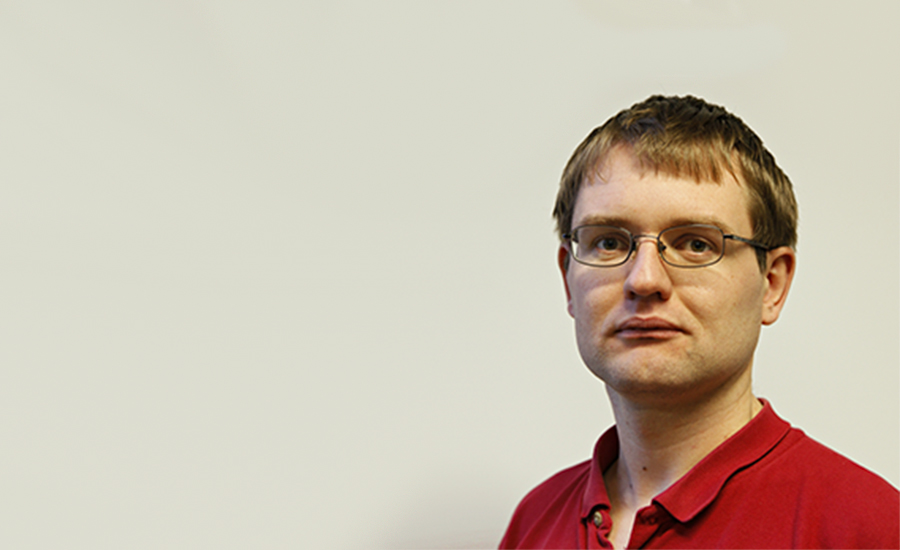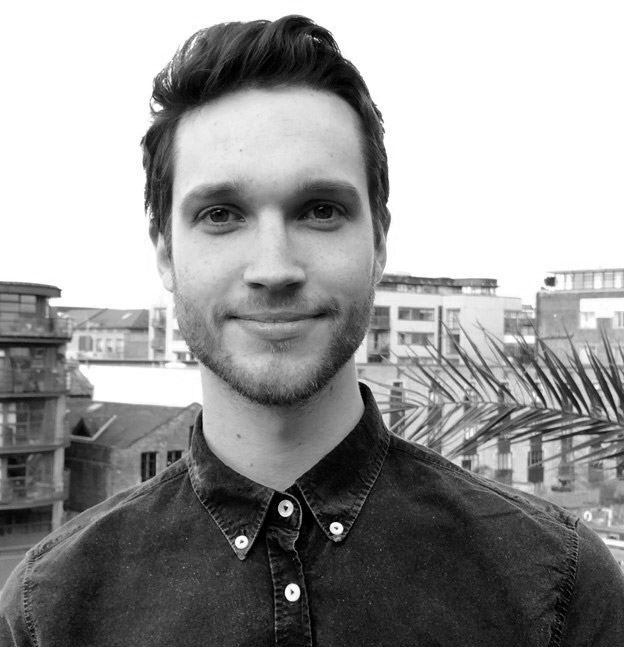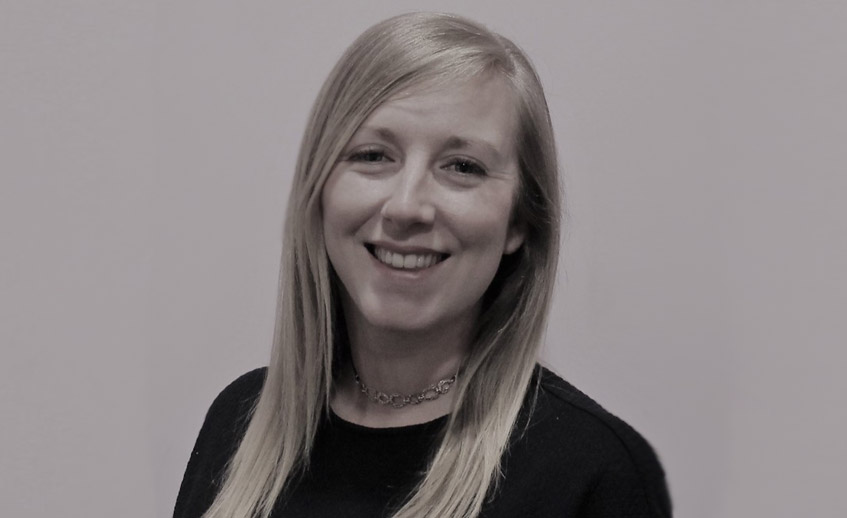What does an academic’s day look like during term time and in the summer? And how do you get from being a student to teaching at university level? Dr David Pugh, MChem in Chemistry at the University of York, told us about his journey and the skills needed to do his job well.
Dr David Pugh
Tell us about your career path to date.
I look after the delivery of practical chemistry teaching in our undergraduate teaching laboratories in the University of York’s Department of Chemistry. This includes both planning what we are going to teach and teaching students in the lab. I actually came to York for my undergraduate degree and have never left! I completed an MChem degree here, before carrying out a Ph.D here under the supervision of Professor Richard Taylor.
What is a typical day like in your job?
In-term and out-of-term days are like two different jobs. When students are here, the days mostly revolve around delivering teaching in the lab. There are lots of organisational aspects to ensure everything runs smoothly and that everyone (students, demonstrators, technicians etc) knows what’s going on, as well as the teaching.
Out of term time, my job is much more around planning for the future, both the logistics of who’s going to come into the lab when, and the actual teaching content. We’re regularly changing parts of the course, and looking for better approaches with the practical teaching to try to ensure we deliver practicals that are effective in the skills they teach, with the right level of complexity.
>> Interested in a career in chemistry publishing? Then see how Bryden Le Bailly, Senior Editor at Nature, went about it.
So, a day out of term time might see me trying to come up with timetables and planning what goes where, or I might be spending time in the lab trying to develop new practicals or refine existing ones.
Which aspects of your job do you enjoy the most?
Teaching students! This is the most enjoyable part of the job – interacting with the students and seeing them slowly develop their practical abilities. It’s especially nice when you see students you’ve taught from when they arrived at university to studying for a PhD and demonstrating in the labs.
What is the most challenging part of your job?
I find developing new practicals for teaching particularly challenging. When you’re a researcher, the outcome of the practical is the key reason for carrying out the lab work: whether it’s to synthesise a new compound or obtain some data to analyse.
With teaching, it’s different. We’re interested in practical processes and whether they are effective at teaching the students.
Teaching labs have many constraints, and practicals need to be designed to take these into consideration. For example, we think about: reaction times, safety of materials, reaction hazards, new skills introduced, practice at existing skills, costs of materials, equipment availability, how many people could carry out the practical, complexity of any analysis, how the labs relate to theory content, and how long it will take students etc.
Developing new practicals that suit the requirements can be really challenging – and you never know exactly how it will turn out until you run it with students for real.
Dr David Pugh (in the blue coat) with Year 3 students.
How do you use the skills you obtained during your degree in your job?
I think the use of the practical skills I learnt will be self-evident in this job, so I’ll focus on some of the other skills. Communication skills are essential, whether using oral skills to explain subjects to students (individually or in groups), giving presentations (e.g. practical briefings), or using written skills (through the lab scripts).
Troubleshooting instruments is a really valuable skill, as the loss of an instrument could really affect students’ progress on a lab day – so being able to quickly fault find and fix is really useful.
And, of course, the skill of being able to learn something you didn’t know how to do is crucial. Chemistry will keep changing, with new areas coming into existence. For example,. programming and computational chemistry are core components in our undergraduate degree programme now, but I had no previous experience in those areas.
Are there any other skills required in the work you do?
Good IT Skills and administrative skills have proved essential. So much of the successful running of the labs comes down to organisation. Being able to manipulate student lists, experiments, marks, attendance data etc is a crucial part of the role – I’d really struggle without effective database and spreadsheet skills that can quickly and efficiently generate the data I need.
Is there any advice you would give to others pursuing a similar career path?
If you do pursue this career path, make sure you network with others doing the same kind of role. Meeting and discussing teaching approaches with those who can really relate is so useful, and makes you really think about how you design and deliver your teaching.
This became even more useful at the onset of the Covid-19 pandemic, when we met regularly to work together to solve the challenges of practical teaching without labs.
>> Would you like to get involved in the SCI Young Chemists’ Panel? Find out more here.
>> Excited about a career in next generation drug development? Read how Rachel Ellis got involved
Interested in a career in chemistry publishing? Then see how Bryden Le Bailly, Senior Editor at Nature, navigated the path from academia to science communication.
Tell us about your career path to date.
I am a Senior Editor at Nature magazine, overseeing what we publish at the chemistry/biology interface. I completed a MSci in Chemistry at the University of Bristol, followed by a PhD in Organic Chemistry at the University of Manchester in which I looked at signalling with synthetic systems in membranes. I was always interested in education generally, and a great teacher of mine told me Chemistry would have enough to keep me engaged. She wasn’t wrong.
Bryden Le Bailly, Senior Editor at Nature magazine
A short post-doctoral position let me carry on research for a year, but I became more certain that a career in academia wasn’t for me. I enjoyed the idea of research more than its realities, and academia didn’t really work with other life choices I wanted to make. Editorial work suits this balance far better while staying close to the science.
Coupled with my interest in science communication, it looked like a good fit. To read and discuss exciting, cutting-edge research didn’t seem too bad a way to make a living. I looked into editorial jobs and, after discussions with a former editor in the Bristol Chemistry department, I started applying for positions at Nature journals. A locum position at Nature Nanotechnology led to me applying for the permanent position at Nature, where I’ve been for a little over five years.
What is a typical day like in your job?
The core of the job is deciding which submissions to review and publish. So, I read, a lot. The areas I cover comprise how molecules are made and how they can be used to interrogate biology or as therapeutic leads, as well as biochemistry, membrane protein biology, and a few other bits and pieces.
If that sounds like a wide range of topics, it is! It’s the same for all Nature editors. This keeps the job varied and interesting. The rest of the job stems from the papers I handle: overseeing peer review, taking decisions post-review, and what reviewer requests need addressing before we can proceed.
This all involves discussions with my fellow editors. In addition, I speak to Principal Investigators (PIs) and other lab members about work coming out of their labs that might be suitable for Nature.
After we decide we’ll publish something, I look for other ways we can promote the work. I pitch papers we are publishing for associated coverage in News & Views, features, or to go on the magazine cover.
Finally, Nature editors commission reviews and perspectives on topics we think are important and timely, and we discuss with our magazine editors news or topics that we believe should be covered journalistically.
Which aspects of your job do you enjoy the most?
Travelling for the job has to be one of its best perks. I manage to take around five to six trips a year, locally and internationally, to conferences and labs. Discussing brand new science one-on-one with the foremost experts in that field is a massive privilege.
However, I also enjoy supporting early-career researchers to publish in Nature and guiding them through our selection process and expectations. A longer-term way I have looked to support early career researchers (ECRs) is by delivering writing and publishing Masterclasses.
What is the most challenging part of your job?
Saying no to about 90% of what gets sent to my desk at Nature, despite it being (mostly) great science.
>> Excited about a career in next generation drug development? Read how Rachel Ellis became involved in Rachel's Careers for Chemistry blog.
How do you use the skills you obtained during your PhD/Postdoc in your job?
A good knowledge of organic chemistry and chemical biology is very helpful, not only for assessing manuscripts but also to advise on standards for Nature and the rest of the Nature portfolio. I am glad I chose research projects that required me to learn a range of techniques and delve into lots of different areas. Some of the more tangentially related areas to my studies are core responsibilities for me in my job now.
Which other skills are required in the work you do?
An interest in a breadth of science and willingness to learn are key. You will be exposed to areas you had previously never appreciated or knew existed in this job, and it is important to understand every submission from all its angles, and quickly.
This involves effective communication with other editors. Communication and learning skills also come into play when you’re out and about, where you might discuss 15 different subjects over a poster session at the end of a long day, or during a visit to an institute. Finally, editors need a good eye for detail.
Bryden has used his background in organic chemistry to forge a career in publishing.
Is there any advice you would give to others interested in pursuing a similar career path?
Firstly, the pace of the job and its expectations are very different from research. Looking at a manuscript from a scientific and editorial standpoint are two very different things. Consider if you have a critical eye when reviewing papers for a journal or reading the literature.
If you can explain to your colleagues or friends why a piece of research is exciting or ground-breaking, this is a good starting point. However, my principal advice would be to talk to editors.
We go to conferences and are happy to discuss the job in more detail. When I first applied for editorial roles, it was helpful to discuss the position with a former editor. When I didn’t get the jobs I applied for, one of the interviewers called me to explain and encourage me in the right direction. This experience was invaluable in getting me to where I am today.
>> Suze Kundu went from academia to presenting TV shows on the Discovery Channel. Trace her storied career path in Suze's Women in Chem blog.
In the first of our new Careers for Chemistry Postdocs series, Rachel Ellis, Senior Client Proposal Coordinator at drug development company Quotient Sciences, speaks about putting her chemistry skills to the test in a new setting and integrating scientific knowledge with people skills.
Rachel Ellis, Senior Client Proposal Coordinator at Quotient Sciences
Tell us about your career path to date
In my current role as a Senior Client Proposal Coordinator, my primary responsibility is to support the Business Development team by collating technical information from the different business units at Quotient Sciences to prepare proposals that meet the prospective clients’ needs, spanning multiple disciplines of drug development.
I work with subject matter experts in Active Pharmaceutical Ingredient (API) synthesis and scale-up, carbon-14 isotope labelling, formulation development, analytical services and drug product manufacturing to generate complex written proposals for clients looking to accelerate their drug development programmes.
I started my career in chemistry with a Master’s degree from The University of York, which encompassed a year-long industrial placement with a speciality chemicals company in the Netherlands. This was a fantastic opportunity to put my chemistry skills to the test for the first time in an industrial setting and informed my decision to explore a career in chemistry outside of academia.
Following completion of my degree, I started working life as a Research Chemist within a global contract research organisation (CRO). The position was a perfect fit for my interests at the time; it was organic synthesis-focused, within the pharmaceutical sector and involved face-to-face interaction with clients.
After 18 months in the role, I identified my strengths in communication and relationship building so took the decision to pursue a career outside of the laboratory, moving into scientific recruitment where I could apply my scientific knowledge and soft skills in equal measure. I spent four years in scientific recruitment where I developed an array of new skills including networking, negotiating, influencing, account management, people management and performance evaluation.
Following a busy four years, I decided to take some personal time to focus on priorities outside of my career and embarked on a twelve-month career break. This was a fantastic opportunity to reassess my skills, interests and objectives, which ultimately brought me into my current role in proposal development. The position perfectly integrates my scientific knowledge and people skills and offers opportunities for continuous development in a dynamic sector.
What is a typical day like in your job?
A typical day as a Proposal Coordinator involves the evaluation of proposal requests from clients, technical discussions with subject matter experts to define project requirements, the preparation of comprehensive proposals including technical writing, pricing assessments and resource planning and any additional client engagement activities to support the proposal award.
Typically, I would lead the preparation of several proposals at any one given time which may include one or more drug development services.
Rachel Ellis seeks to help deliver life-changing medicines in her current role.
Which aspects of your job do you enjoy the most?
I particularly enjoy engaging with new clients to discuss how we can support them to accelerate the delivery of life-changing medicines to the market with greater speed and efficiency. I also enjoy the diversity of tasks involved in my role (scientific discussions, technical writing, pricing activities and project planning) and the balance between working independently and collaboratively as a team.
What is the most challenging part of your job?
As my role involves supporting multiple proposals at any one given time, time management and prioritisation can be challenging to ensure both internal and external deadlines are met. Organisational skills and open communication are key to ensuring projects are delivered on time and client engagement is maintained.
>> Interested in joining SCI’s Young Chemists’ Panel? Find out more on the Young Chemists Panel's webpage.
How do you use the skills you obtained during your degree in your job?
The breadth of scientific knowledge gained from my degree has provided a robust foundation for my current role and enables my participation in technical discussions across multiple scientific disciplines. Report writing, time management and attention to detail are also key skills that I now apply on a day-to-day basis.
Which other skills are required in the work you do?
My current role requires collaboration between many individuals (both internally and externally) across a multitude of disciplines, including technical experts, project managers, business development teams and financial teams.
Strong interpersonal skills are key to ensuring all parties are engaged and aligned in decision making processes. Effective communication skills are also the foundation for a career within any client-facing environment.
Is there any advice you would give to others interested in pursuing a similar career path?
In general, I would strongly advise investing time to evaluate the variety of roles available within the science sector. Don’t be afraid to explore opportunities outside of the norm. Over the course of my career to date, my eyes have been opened to the breadth of roles available within science that are not necessarily laboratory-based, such as regulatory affairs, quality assurance, medical communications and commercial positions.
I would also advise regular self-evaluation to assess your strengths and areas of interest at any given time to assist in the building of a personalised career development plan. This will help to focus your attention on opportunities to develop the skills you need and seek out exposure to relevant activities either within your current organisation (i.e. attending client calls/visits or developing interpersonal skills through participation in cross-departmental activities) or through voluntary work and networking.
>> Interested in a career in science communication? Read Suze Kundu’s inspiring story.

















